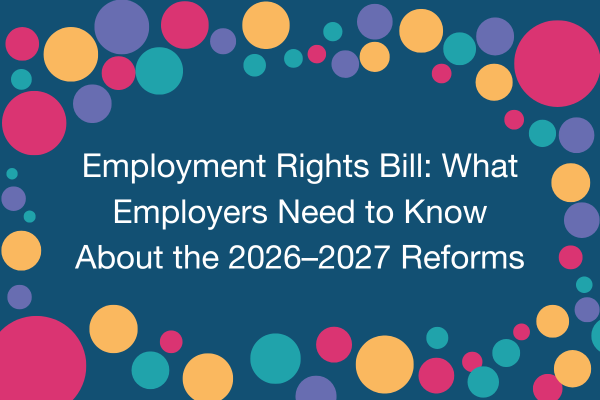News
The Four-Day Work Week and UK Employment Law: Navigating New Legislation and Practical Implications

The concept of a four-day work week has gained considerable momentum recently, particularly as businesses and employees strive to balance productivity with well-being. As the government considers new plans to strengthen employees’ rights to request a change in their working patterns including a compressed four-day work week, this article examines the legal framework surrounding flexible working in the UK, provides examples where a four-day
work week has been implemented and outlines key considerations for employers looking to adopt this model.
The Right to Request Flexible Working: Legal Foundations
In June 2014, the UK government introduced the right for employees to request flexible working arrangements. These arrangements could include changes in the number of hours worked, the times at which they work, or their work location. Initially, this right was available only to parents and carers and was often seen as the right to return from maternity leave on a part time basis. It was later expanded to cover all employees with at least 26 weeks of continuous service and the requirement for the requesting employee to have caring responsibilities was dropped. In 2023, the Flexible Working (Amendment) Regulations 2023 further strengthened these rights, allowing employees to make two requests per year and mandating employers to respond within two months of receiving the request. As of April 2024, all employees in the UK now have the right to request flexible working from their first day of employment.
It's important to note that this legislation does not guarantee the right to a change in working arrangements but provides employees with the right to request a change. Employers must consider these requests "in a reasonable manner," weighing the potential impact on business operations, costs, and the feasibility of meeting both employee needs and business requirements. If a request is rejected, employers must identify one or more the eight reasons permitted under the law for refusal, such as the burden of additional costs or the inability to meet customer demand.
Recently, the debate over the four-day work week has resurfaced in the media, driven by growing public interest and the UK government's consideration of plans to strengthen employees' rights to work fewer days without a reduction in pay. The government is reportedly exploring ways to make a compressed four-day week more accessible, particularly in light of the successful trials and growing demand for more flexible working arrangements post-pandemic.
The Four-Day Work Week: Variations, Successes, and Challenges
The four-day work week is a flexible working model that has been trialled by various companies across different sectors. It is crucial to understand that this model can take different forms. The most widely discussed version involves reducing the working week to four days while maintaining the same pay and benefits. However, in many instances, particularly those highlighted in the media, employees are expected to work the same total hours as they would in a five-day week but compressed into four days. This typically results in longer workdays, often stretching to 10 hours each day.
A significant trial of this model took place in the UK in 2022, involving more than 60 companies across various sectors, including retail, healthcare, and manufacturing. According to a report by the BBC, this trial saw around 2,900 employees participating in a six-month experiment, where they worked their usual contracted hours over four days instead of five without a reduction in pay. The results were overwhelmingly positive, with 92% of the companies opting to continue with the four-day week after the trial ended. Companies reported that productivity remained stable or even improved, while employees
experienced lower stress levels and improved work-life balance.
Despite these successes, the implementation of a four-day work week has been more challenging for some companies, especially in sectors that require continuous service. Supermarket chains Morrisons and Asda, for example, have experimented with flexible working models but have struggled to implement a four-day week across their operations. The need to keep stores open seven days a week and maintain consistent customer service levels has reportedly made it more difficult for these retailers to reduce working days without impacting operations. Morrisons has instead focused on offering more flexible shift patterns and part-time opportunities, while Asda has explored options for more tailored working hours that meet both employee needs and business demands.
These examples illustrate the complexities of implementing a four-day work week in some industries. While the model has proven beneficial in sectors where work can be more flexible and output dependent, such as tech and creative industries, it presents significant challenges in sectors like retail, healthcare, and manufacturing, where continuous service is critical.
Considerations for UK Employers
For UK employers considering a transition to a compressed work week, several key factors require careful consideration:
Compliance with Employment Law: Employers must ensure that any move to a different working pattern complies with existing employment law, particularly regarding the right to request flexible working. Handling requests in a reasonable manner is essential. It is likely that the Employment Rights Bill which will be published this Autumn will contain provisions to beef up the current right to request flexible working arrangements. Such changes may include limiting the scope for employers to refuse a request, or may require that all requests are granted except for in specified circumstances, so that the emphasis becomes on allowing requested changes rather than a right to request changes which can be refused.
Impact on Operations: Employers should assess how a four-day work week, whether in its traditional or compressed form, would impact their operations.
Employee Well-Being: The compressed four-day work week is likely to lead to longer working days, which may affect employee well-being. Employers should consider whether their workforce can sustain longer hours without detriment to quality of output, morale, health, or productivity. For some employees, the extended hours may lead to fatigue, which could counteract the benefits of having an extra day off.
Productivity and Performance: Employers need to establish clear metrics to measure whether the compressed hours are leading to the expected gains in productivity. Performance goals should be set, and project management tools can be useful in tracking progress. If productivity dips, employers may need to reconsider the viability of the model.
Trial Periods and Flexibility: Before committing to a permanent change to working patterns, employers might consider a trial period. This allows for adjustments based on employee feedback and operational outcomes. A successful request for a flexible working arrangement constitutes a permanent change to contractual terms and conditions of employment, with a further request being necessary for subsequent changes or to revert to the original working pattern. This can sometimes be overlooked in light of the apparent ‘flexible’ nature of the process.
Communication and Transparency: Open and transparent communication is key to the successful implementation of a four-day work week. Employers should clearly explain the reasons for the change, how it will be implemented, and what it will mean for employees. Regular check-ins and feedback sessions can help address any issues that arise during the transition.
What’s next?
The Employment Rights Bill, promised by 12th October 2024 (being 100 days since the government was elected) is expected to contain plans for the creation of a Fair Work Agency (FWA) as part of their broader agenda to enhance workers' rights and enforce new regulations. At present it is not clear what enforcement powers or funding the FWA will have, or indeed how its powers would interact with those of the Employment Tribunal. It may well be that the Employment Tribunal will retain its current power to enforce individual rights by employees and the FWA will act to to oversee and regulate employment standards, ensuring that workers' rights, particularly around flexible working, are upheld across the country potentially in a similar way to the Health and Safety Executive.
Advice for your business
The four-day work week, whether in its traditional form or as a compressed schedule, presents a compelling option for UK employers, offering potential benefits in terms of recruitment and retention, productivity and employee well-being. However, the model requires careful consideration and planning, particularly in light of UK employment law. Employers must navigate the legal obligations surrounding flexible working requests while also considering the practical implications of such a significant change. With the right approach, the four-day work week could represent a new frontier in the evolution of work in
the UK, but it is not without its challenges and complexities. Employers must weigh these factors carefully to determine whether this model aligns with their business needs and workforce capabilities.
Whether or not your business is considering a 4-day week, it’s really important that you keep up to date with proposed changes to the flexible working regime given the new measures being considered. You can contact us here with any employment questions you may have, or follow us on LinkedIn for regular updates.



